THE MUCK AT ROCHDALE COUNCIL STILL MAKES THE TOWN A BLISTER OF REVILED HORROR FOR THE COUNTRY BUT AT LEAST NOW THERE IS ONE LESS ABUSER TO DEAL WITH. THE WORD NAMES SOME OF THE CULPRITS.
For many years Rochdale as a town, and its career politicians in particular, have been engaged in a systematic betrayal of the youth of that town as predatory paedophiles. With the death yesterday of ex-Rochdale council leader, Richard Farnell things maybe starting to change.
The abuse and cover ups go back as far as the 70’s when Rochdale alternative press (rap) ran a series of articles about how the then M.P. for the town, Cyril Smith was using the children’s homes of the area as a private honeypot for his perverted activities. The truth of these allegations were never contested in court as Smith never sought to challenge them. Soon, these articles were picked up by private eye magazine, and made public nationwide.
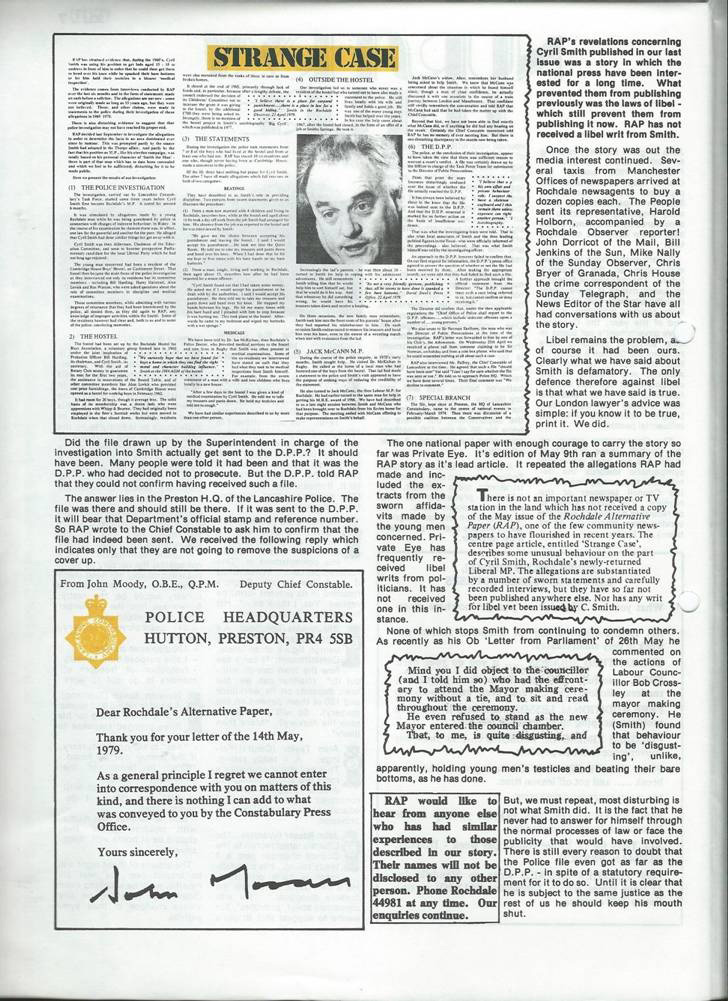
At the time Smith represented the Liberal party although he had also been a member of Labour. At the time the Liberals were a place for scandal as in In May 1979 their leader, Jeremy Thorpe was tried at the Old Bailey on charges of conspiracy and incitement to murder, arising from an earlier relationship with Norman Scott, a former model. Thorpe was acquitted on all charges, but the case, and the furore surrounding it, ended his political career.
The Liberal party’s subsequent leader, David Steel admitted believing in 1979 that child abuse allegations against Sir Cyril Smith were true, but did nothing to assess whether he was a continuing risk to children.
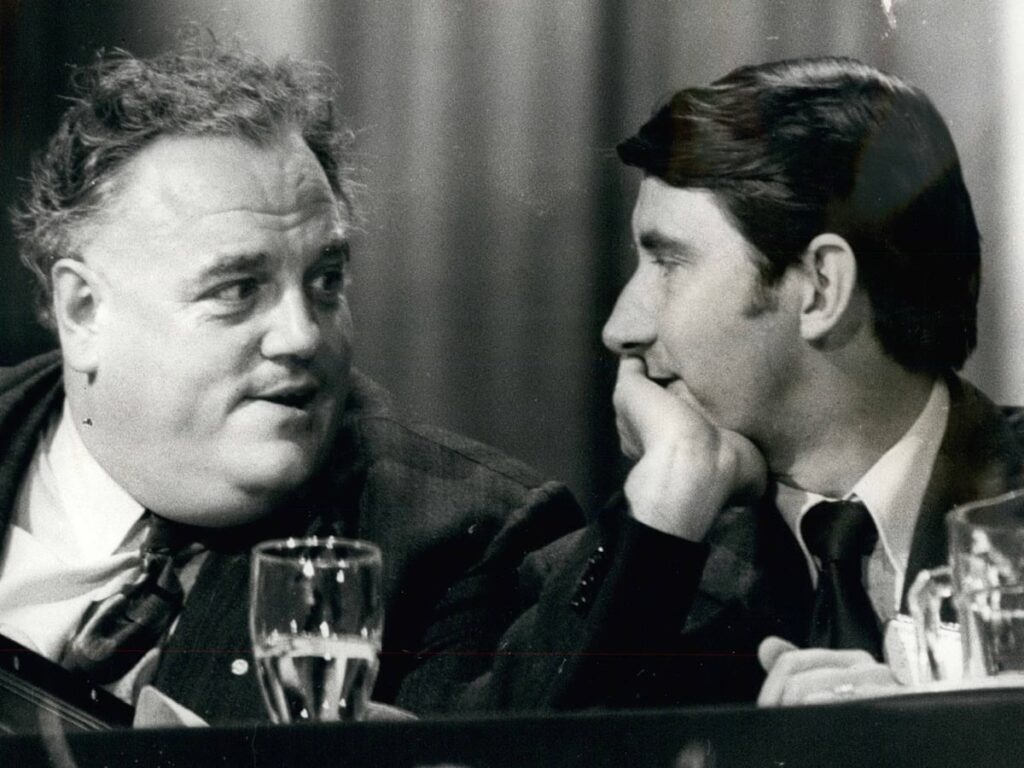
The former Liberal party leader said the late MP for Rochdale confirmed in a conversation that reports of child sexual abuse in the media were accurate.
But rather than suspend and investigate the MP, Steel allowed him to continue in office. Smith stepped down as an MP in 1992 and died in 2010.
Steel passed a recommendation that Smith should receive a knighthood in 1988, which was successful. Steel said he did not mention his conversation about sexual abuse to the honours committee.
Enter, Richard Farnell, a body double look alike of Cyril Smith. And enter he certainly did. Farnell would trawl the parks and public toilets of Rochdale (the toilets in Smith Street were notorious for this) swooping on his prey. The children in the homes of Cambridge house and Knowle view were particularly at risk from Rochdale’s predatory politicians.
There was also the strange incident that went down in Rochdale folklore when Farnell was “attacked” in a local park when going for a walk by himself at 2 am one morning.
Farnell ran Rochdale council like a mafia boss putting people into positions of power who were financially dependent on him. One of these was the then Chairman of Heywood and Middleton Labour party, Mark Bramah who used his power to try and stifle debate on the evidence of children’s homes abuse. At a CLP meeting on 20th October 2017 Bramah was confronted by CLP member, Alan Davies over the issue of covering up child abuse. Bramah totally lost the plot, shouting and threatening violence. Another CLP member was moved to write the following on social media:
“I went to my local Labour General Committee meeting last night in Heywood, and can’t believe the viscous attacks Alan received by the chair Mark Bramah. Alan was invited to speak about the sexual abuse at Knowle View etc but was attacked all the way through, even after he had sat down. Mark even came up to Alan the meeting and started again. I thought he was going to physically going to attack Alan. I can’t understand why Mark Bramah was overreacting so much. Other people noticed too. One woman was so angry at Mark that she and others walked out, telling Mark to stop Bullying Alan and let him speak. She was really angry. Was quite a shock to see a CHAIR to behave that way.”
Yet, despite all the reports and rumours, Farnell seemed untouchable until the overarching Government enquiry into sexual abuse got underway. What follows is a short extract from the enquiry’s findings:
“1. In 1980, Richard Farnell was elected on to Rochdale Council as a councillor for Newbold Ward. In 1985 he became Leader of the Labour Group and in the following year, when Labour took control of the Council, Mr Farnell became Leader. In 1992, Labour lost control of the Council and Mr Farnell lost his seat. It is noteworthy that Mr Farnell who was born in 1958 was in his late twenties when he became Leader and he left the Council when he was still in his early thirties. Following a gap of some 22 years, in 2014, Mr Farnell was re-elected as Leader of Rochdale Council, and when he gave his evidence to the Inquiry on 24 October 2017 he was still in office.
2. Mr Farnell, who did not seek Core Participant status, and was legally represented when he appeared at the hearing, said to us in evidence that part of his role during his first term as Leader was to chair the Policy and Resources Committee, which met about twice during a six-weekly cycle.[1] This would be a meeting of committee chairs with opposition members included. There was a ‘Chairs’ Panel’, which was a panel of all the various committee chairs including Education, Social Services, Development Services etc., who would also meet around twice during the same cycle. It was he, Mr Farnell said, who established the panel so that councillors could talk through “the big issues” together. It was a forum to discuss major manifesto issues, but major contentious issues could be brought to the meetings also. The Chief Executive would be in attendance, who at that time was John Pierce.[2] He also described informal ‘leadership meetings’ attended by the deputy, the Chief Executive and the Head of Legal Services, at that time David Shipp.[3]
3. Mr Farnell explained to the Inquiry that there were essentially four ways in which serious issues could be brought to his attention: at the informal leadership meetings; a report could be made to the Policy and Resources Committee; the matter could be raised at the Chairs’ Panel meeting; and directors of Council departments could seek a direct meeting with him. He added that matters could also be brought to his attention informally.[4]
4. In the course of his evidence, Mr Farnell was asked about his close colleague, and the chair of the Education Committee throughout his period of time as Leader, Mary Moffat (since deceased).[5] He said he had known that Mrs Moffat had an office in the Education Department of the Council, and he said that she had been Mr Farnell’s deputy for about a year during the first half of his period as Leader.[6] Mr Farnell told the Inquiry that they were on a number of committees together.
5. However, Mr Farnell told the Inquiry that, despite being his close political colleague and erstwhile deputy, and despite the fact that, in about March 1991, Rochdale Council was mired in a scandal on both a local and national scale – the fallout from the Middleton satanic abuse cases – and could ill-afford another public scandal, he “had no recollection” of Mrs Moffat ever bringing to his attention the allegations of child sexual abuse and child sexual exploitation that had afflicted Knowl View School during the time Mr Farnell was Leader.
6. Mr Farnell agreed that it was hardly something he would have forgotten, so he agreed that when he said he “had no recollection” of Mrs Moffat raising such issues with him, what he really meant to say was she did not bring them to his attention.[7]
7. The evidence we have heard was that Mrs Moffat was well-versed and well-briefed in the issues affecting Knowl View. She was the first to be told about the Hilton incident in September 1990.[8] She was present at a meeting two years later on 13 March 1992 when Mrs Mellor presented her report to opposition party education spokespersons as well as advisers and Knowl View School’s Head Teacher,[9][10] and she chaired a meeting on 27 March 1992 at which the report was also presented to the school staff.[11][12]
8. Mr Farnell denied being informed about the result of a strategy meeting that took place on 11 April 1991 by anyone, despite the fact that Diana Cavanagh had written in a note of 4 April 1991 that he was to be informed about it.[13] In her evidence to the Inquiry, Mrs Cavanagh said she could not say that Mr Farnell had been provided with the minutes of the strategy meeting or the actions required to be taken. However, she thought it was “likely” because, according to her, he was already aware of some of the difficulties at Knowl View as there were financial consequences to the appointment of an interim Head Teacher and a permanent Head Teacher, which would go through the Policy and Resources Committee of which Mr Farnell was chair. She added that there had been an amendment to the budget at a Policy Committee meeting in October or November 1990 to accommodate the expense, so, according to Mrs Cavanagh, Mr Farnell was “already in the loop … in knowing that Knowl View was of concern”.[14]
9. When he came to give his evidence to the Inquiry, Mr Farnell said that Mrs Cavanagh’s evidence about this was incorrect. Having heard her evidence on Friday 20 October 2017, he said he went to the reference library to dig out the minutes of the Policy and Resources Committee meeting she was referring to and found a meeting of 26 November 1990, in which he said there was no mention of any amendment to the budget or to Knowl View. The only thing he said came close was a resolution that the responsibility for the appointment of Head Teachers be delegated to the Chief Education Officer after consultation with the chair and vice-chair of the Education Committee. In any event, he said that if there had been sensitive issues around Knowl View they would not have been raised on the public agenda, and they were not raised with him by any other means.[15]
10. When it came to the joint commissioning of the Mellor report in early 1991 by the Education Department and Legal Services, Mrs Cavanagh told the Inquiry in her evidence that the report was commissioned on behalf of the Leader, Richard Farnell, and on behalf of Mary Moffat, the Education Committee chair. She said that she could not imagine that the report could have been commissioned in the Leader’s name without him knowing, not least as there were financial consequences to commissioning the report: Mrs Mellor had to be paid and Mrs Cavanagh said that the Education Department did not pick up the bill; she assumed it was Corporate Services, which reported to the Policy and Resources Committee of which Richard Farnell was chair.[16][17]
11. Given the joint commissioning of the Mellor report, which was dated 18 February 1992,[18] in light of the fact that Mrs Mellor had expressed the report to be “confidential to the Directors of Legal Services and Education, their properly delegated officers and such members of the council as the chair of the same as advised by the said directorates shall decide”,[19] and given that it was to be circulated to leading members of the political parties (among others), Mrs Cavanagh said she had “no doubt” that Mr Farnell got a copy of it.[20]
12. By contrast, Mr Farnell, when giving evidence to the Inquiry, insisted that it was unusual for a report by an external adviser to be commissioned in the Leader’s name, as was Mrs Cavanagh’s account. Mr Farnell said external advice was sought by chief Council officers under delegated powers, and if the Education Department did not pay for the report then he presumed it was the Legal Department that did.[21]
13. As for the confidentiality section of the report, Mr Farnell refuted the suggestion that the term “the chair of the same” was a reference to him. Instead, he said he had looked the point up and there was “a very clear legal definition” that “the chair of the council” meant the Mayor of Rochdale. Whether or not Mr Farnell found a legal definition to suggest this, we firmly conclude that Mrs Mellor, a child psychologist, whose words these were, did not have in mind the ceremonial office of the Mayor of the town rather than the Leader of the Council when she wrote them. To suggest otherwise, as Mr Farnell did, is risible.
14. Thus, Mr Farnell continued steadfastly to adhere to his account that not one of his political colleagues, neither his Chief Executive Officer nor any Council officer, had ever brought to his attention the facts of the September 1990 Hilton incident, and he denied that he had ever read about the incident in the local press. Moreover, in the teeth of the evidence, he denied seeing any report or knowing that child sexual abuse and exploitation had been occurring in and outside Knowl View School ‘on his watch’, as it were.
15. After many years in local politics, in 2012, Peter Joinson was elected to Rochdale Borough Council for Labour. In the following year, he became Labour’s chief whip.[22] On 8 June 2014, Mr Joinson became aware of press articles, one in the Manchester Evening News, and the other on Rochdale Online,[23] which were in relation to Mr Farnell’s then appointment as Leader of the Council and his public claim that when he was in office between 1986 and 1992 he was unaware of allegations about sexual abuse at Knowl View School.
16. Three days later, on 11 June 2014, Mr Joinson had a meeting with Mr Farnell. Mr Joinson’s account of the principal reason for the meeting was that he was the Labour Group’s chief whip. There had been a change of leadership but, prior to Mr Farnell taking control, his job was to send out to all Labour Group members the potential Group positions that they would have wanted for the following municipal year. There were, he said, many minor positions on various subcommittees and various panels that needed filling, and he had the documentation for that so arranged a meeting with Mr Farnell.
17. A secondary reason Mr Joinson wished to speak to Mr Farnell was as a result of the press articles, because, as chief whip, one of his jobs was to ensure that no action brought the party or Council into disrepute, and so he wanted Mr Farnell to clarify his statement to the press for party records.[24]
18. According to his evidence, the meeting took place in the Riverside offices in Rochdale. It lasted around 20 minutes. They sat at a table in Mr Farnell’s office and Mr Joinson made some handwritten notes from which he made a faithful, typed copy, probably the next day, he thought.[25]
19. Mr Joinson referred in evidence to his typed note, in which he had recorded Mr Farnell’s reaction to Mr Joinson raising the press articles with him. According to Mr Joinson, Mr Farnell told him that he had received a report from Councillor Hawton’s senior officer that had been written by a sexual health worker employed by the health authority,[26] as a consequence of which the Council was preparing a report. Mr Farnell told him that this had been between about March and June 1992. Mr Farnell also said that he had only seen a draft report and the full report was not complete until June, by which time he (Farnell) had lost his seat and ceased to be Council Leader. Mr Farnell added that the full report was presented to Councillor Rowen who had taken over leadership of the Council. The report Mr Farnell told Mr Joinson he had received must have been the Shepherd report. Mr Farnell seems also to have mentioned a report that was produced in response to the Shepherd report. This could only have been the Mellor report.
20. As a result of what Mr Farnell had told him, Mr Joinson took the matter to the Deputy Leader of the Council, Peter Williams, and he sought advice from the regional Labour Party who referred him to a senior officer of the Party in London who referred him back to the regional director. By this time, Operation Clifton had commenced and the regional director advised that the police action should take its course.[27]
21. Mr Joinson said he contacted the police in light of their appeals for information.[28] Mr Joinson spoke to the police first on 30 October 2014 and then again on 7 April 2016. It was in his 2016 police witness statement that Mr Joinson said that Mr Farnell had actually named the sexual health worker as “Shepherd” and he had said that there were allegations of sexual abuse in the draft report he had seen. Although he had not noted them at the time, Mr Joinson told the Inquiry that he recalled those facts following his meeting with Mr Farnell.
22. Mr Farnell was asked about Mr Joinson’s allegations. He said that the meeting had been very brief, and Mr Joinson had only popped his head round the door to ask him whether he was aware of anything to do with Knowl View, to which he said he responded “I was not aware of the incidents at Knowl View”. That, Mr Farnell said, was the sum total of the conversation.
23. Mr Farnell was shown Mr Joinson’s typed note. He said there was no discussion about various Group positions as he had already dealt with them, so there was no need to meet about them and he said Mr Joinson took no note. Mr Farnell claimed that Mr Joinson had invented the content of his typed note. He said that Mr Joinson’s reasons for doing so was that he had run Colin Lambert’s campaign during the leadership election in 2014. Mr Farnell was challenging Mr Lambert as Labour Group Leader and there was, he said, a nasty campaign to smear him along the lines that Mr Farnell had been Leader at the time of Knowl View, that he had known about it and covered it up. So this was nothing more than an invention to damage him politically and undermine him since becoming the new Leader.
24. However, Mr Farnell was forced to agree that Mr Joinson did not in fact deploy the note to damage him politically, and he agreed that it only surfaced when Mr Joinson first spoke to police in October 2014, several months after the election.[29]
25. Following Mr Joinson’s evidence, the solicitors for Rochdale Council brought to the Inquiry’s attention minutes of the annual meeting of the Council of 4 June 2014, at which, among others, Mr Farnell and Mr Joinson were both present. The solicitors wrote “This is the annual meeting at which the Council appoints elected members to committee positions on the Council. Our understanding is that the appointment recommendations from the Party Leaders would have gone to the committee clerks on either the 2nd or 3rd June 2014.” The implication from this is that the minutes show that the appointments Mr Joinson said he was meeting Mr Farnell to discuss on 11 June 2014 were actually made on 4 June. However, the minutes do not support any suggestion that all appointments were made by the 4 June 2014 meeting, as it is clear from the minutes that there were still several appointments to be made and it would be normal for a Council to make more minor appointments on a phased basis following an election.”
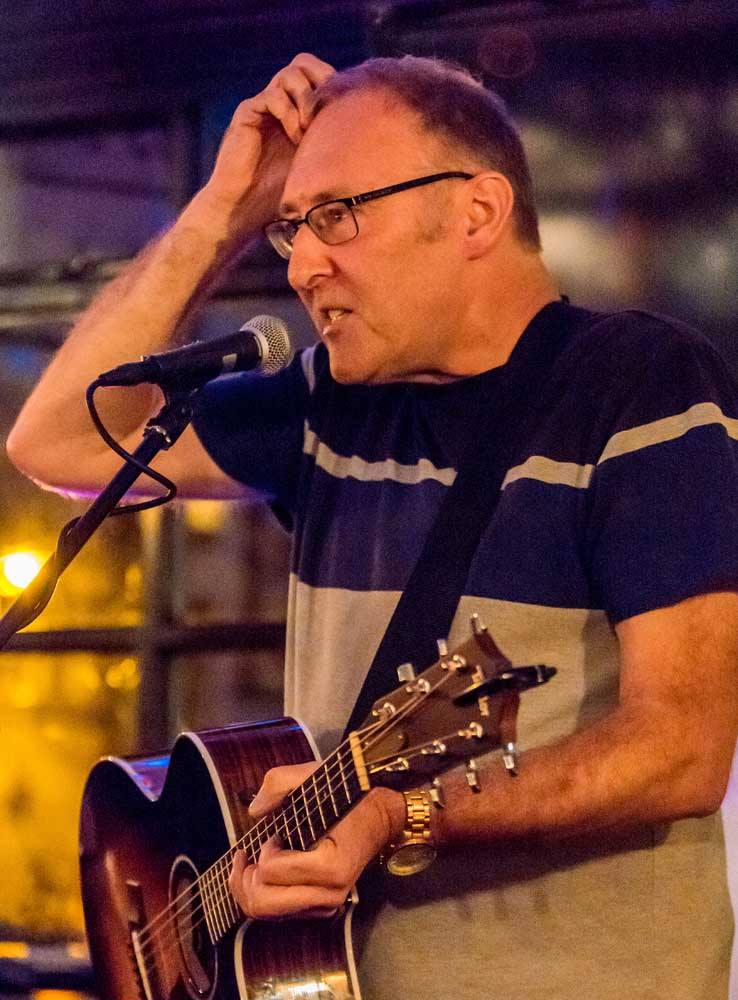
The child abuse enquiry child abuse enquiry went on to report what Bramah had told them. They evidently did not believe his take on events as Bramah was named in the final report as someone who had covered up child abuse:
“40. We have received a letter688 from Mark Bramah dated 23 January 2018. Mr Bramah says
he was employed as a policy officer by Rochdale Council from August 1989 until September
1992. His responsibilities included providing political support and assistance to the Leader,
then Richard Farnell, as well as his deputy, Jim Dobbin. He adds that he also worked closely
with Mary Moffat, the Education Chair. As such, he says he was probably closer to the
leadership of the Council than any other serving officer. He says that during his time he
attended meetings and informal briefings involving the Leader and his Deputy and the issue
of Knowl View School was never raised at any meeting while he was present, neither did
any report to his knowledge come before the leadership during that time. Thus, he says it is
“completely misleading” to say that Mr Farnell knew about Knowl View School or indeed ever
received a report about it. He continues to say that, had it been brought to the attention of
the leadership, it would have been reported to the relevant committee or subcommittee and,
to his knowledge, was not. FARNELL IS BEING INVESTIGATED FOR PERJURY”)
It was soon after that when Alan Davies (who has Jewish ancestry) was reported to the Labour party for anti-Semitism, by the Non-Jewish Mark Bramah. The witch hunters and those that cover up child abuse seem to have a natural alliance. Another Allie to these people was Rochdale Labour councillor, Rana. Rochdale online reported:
The newly-elected Labour councillor who was caught having committed an electoral offence earlier this year has been urged to stand down.
“Spotland and Falinge ward councillor Faisal Rana was given a police caution after voting in two different wards in this year’s local elections.”
The current leader of Rochdale council is Neil Emmott. Alongside, Bramah and Farnell he was named by the child abuse enquiry as someone who had deliberately covered up the subject in Rochdale. Emmott’s career does not seem to have suffered from this. However, this is Rochdale. Corruption is almost compulsory. Emmott is openly gay and frequently uses this to his advantage by insisting that anyone bringing up the question of paedophilia is homophobic. Thereby he attacks the whole gay community.
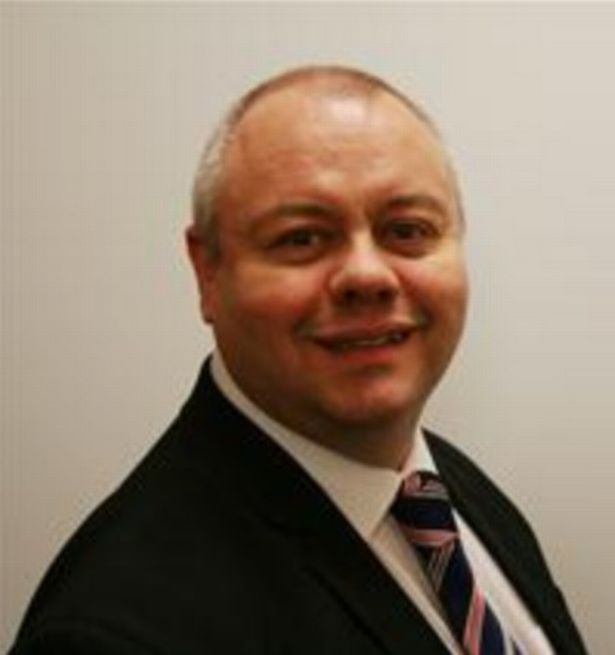
Subscribe
Click here for a secure way to sign up, you will be supporting independent news. Click the button below.
Your Opinions
Disagree with this article? why not write in and you can have your say? email us

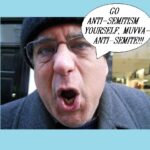
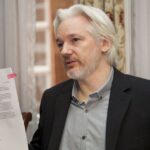
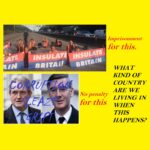

1 comment
Astonishing and detailed e xpose of the Rochdale Mafia. Why has truth only come out after the guilty are dead? What were the political parties doing, not the mention the police?